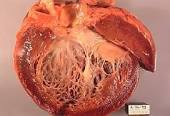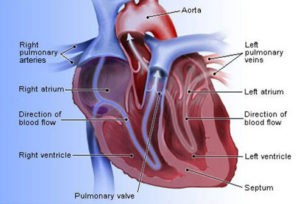
Diagnosed with Cancer? Your two greatest challenges are understanding cancer and understanding possible side effects from chemo and radiation. Knowledge is Power!
Learn about conventional, complementary, and integrative therapies.
Dealing with treatment side effects? Learn about evidence-based therapies to alleviate your symptoms.
Click the orange button to the right to learn more.
- You are here:
- Home »
- Blog »
- side effects ID and prevention »
- Heart Failure-Cardiac Rehab & Exercise
Heart Failure-Cardiac Rehab & Exercise

“When you’re diagnosed with heart failure, your doctor may recommend you take part in a cardiac rehabilitation (rehab) program…”
If you’ve been diagnosed with heart failure, my advice is to begin a cardiac rehab program. Your program doesn’t need to be fancy or expensive. If, as the studies linked and excerpted below, explain, cardiac rehab in the form of moderate exercise can heal the heart, lower blood pressure, and lower cholesterol.
But the phrase get moving sounds…sort of…difficult. And moderate exercise does not have to be. Let me explain.
I was diagnosed with chemotherapy-induced cardiomyopathy (CIC) last January. I was actually diagnosed in 2010 but I was focused on my chronic atrial fibrillation at the time so I completely neglected to talk to the cardiologist about the bigger picture. And when I say chemotherapy-induced cardiomyopathy, I mean heart failure or my heart muscles weakening.
CIC from several of my chemotherapy regimens, adriamycin, Cytoxan, busulfan and melphalan, all can damage my heart. Yes, I’m angry with my oncologist AND my cardiologist. But that was in 1995 so I guess I have to let it go…
The average prognosis for CIC is 5-10 years until end-stage heart failure if I understand the research. As of my most recent echocardiogram, my ejection fraction has increased from 40-45 in late 2019 to 50-55 in early 2020. My cardiac rehab efforts are moving in the right direction then…
My focus then, what I mean by a cardiac rehab program, is strengthening my heart muscles as much as possible. This means living as heart healthy a lifestyle as possible. And exercise is job #1 when it comes to heart health, according to the article below.
This post focuses just on the exercise component of our cardiac rehab program. Nutrition, supplementation, and other heart healthy lifestyle therapies are discussed in other posts.
I should have made it clear at the beginning of the post, that I want to avoid conventional therapies at all costs. NO beta blockers, ACE inhibitors, diuretics, etc. etc. And I certainly can’t have open heart surgery so I am on my own.

Let me be more specific about my cardiac rehab program:
- exercise moderately 6-7 days each week-30 mins. slowly…nice and easy. Don’t strain yourself. No pulled muscles. You are developing a lifestyle, not a one-time thing.
- I recommend an elliptical-preferably in front of one or more television sets (breaks up the monotony). Music is good too…low impact, upper and lower body…
- I go to a large work-out place like LifeTime Fitness, L.A. Fitness, Snap Fitness, Planet Fitness- easy, inexpensive, lots of equipment, easy. I like seeing a familiar face or two, especially in the morning when I work out. No conversation, just a friendly, “Hey Joe!”
- I recommend exercising first thing in the day, get it done and out of the way. If I wait until the end of the day, I am tired and can rationalize my exercise away…
All of the above is designed to do ONE thing. Develop an exercise habit. Get into a routine. I’ve developed such an exercise habit that if I don’t work-out that day, I’m crabby. If you get into a habit/routine of moderate, daily exercise, you too will have to work out each and every day.
Talk with your cardiologist. According to the article below, frequent, moderate exercise will strengthen our hearts.
Have you been diagnosed with heart failure? To learn more about evidence-based, non-toxic heart health therapies, scroll down the page, post a question or comment and I will reply to you ASAP.
David Emerson
- Cancer Survivor
- Cancer Coach
- Director PeopleBeatingCancer
Recommended Reading:
- Can Atrial Fibrillation (AFIB) Patients Have Sex?
- Chemotherapy-induced Cardiomyopathy- How long have I got?
- Evidence to Manage My Heart Disease is “Weak”
- Traditional Chinese Herbal Medicine for My Heart Failure
Looking for a mellow form of exercise? Try tai chi
“This ancient Chinese practice may help lower blood pressure and offer other heart-related benefits-
Protecting the heart
Studies exploring the health benefits of tai chi — which also include reduced pain and improved mood — date back to the 1950s. Tai chi may help lower cholesterol levels and dampen inflammation, both of which are linked to better heart health. But the best evidence seems to be for improving blood pressure, according to a 2008 review of 26 studies co-authored by Dr. Yeh in the journal Preventive Cardiology. In people with high blood pressure, systolic blood pressure (the first number in a blood pressure reading) fell seven to 32 points, while diastolic pressure (the second number) fell by two to 18 points.
Healing the heart
Tai chi may be a promising addition to cardiac rehabilitation, a multiweek program of structured exercise paired with lifestyle and nutrition education. Cardiac rehab, which is covered by Medicare, improves quality of life and survival after a serious heart-related problem, procedure, or surgery. But according to the American Heart Association, only about a quarter of eligible Medicare recipients participate in these programs…”
Exercise Tips for Elder Americans (and Their Loved Ones)
“It’s no secret that many of us become less active with age. In some cases, health problems and weight gain contribute to our sedentary lifestyles. For other people, priorities simply change over the years, and those trips to the gym become fewer and farther between as we opt to spend our days on different pursuits. However, the truth is that maintaining an active lifestyle in middle age and beyond is crucial to preserving health and function…”
Working It! How Exercise Helps Fight Heart Failure
“After a heart-failure (HF) diagnosis, you may be scared to be physically active—after all, your heart isn’t pumping as well as it should be. And for a long time, people with this condition were told to take it easy and rest. But according to the Heart Failure Society of America (HSFA), more recent research shows that it’s perfectly safe and even healthy to exercise. In fact, experts recommend it.
That’s because the benefits are particularly powerful for people with heart failure. Physical activity not only helps you maintain (or achieve) a healthy level of fitness, the evidence shows it improves quality of life and, in certain patients, even increases survival…
So How Much Exercise Should You Get?
People with heart failure typically should aim to work up to about 30 minutes of physical activity most days of the week, according to the HFSA. Remember: You don’t have to do all 30 minutes in a row. You can also split it into chunks, like three 10-minute walks throughout the day…
Activities That Help Your Heart
Pick a low-impact aerobic activity you enjoy, even if that’s just brisk walking around your neighborhood (more on this below). Biking on flat roads, swimming, gardening, using the elliptical, or even bowling are good options too.
Whatever you’re doing, you’ll want to start slow, build gradually, and make sure you can carry on a conversation—if talking to someone becomes difficult, that’s a sign your activity may be getting too vigorous and you need to roll it back. As you get stronger, you may want to increase your activity level. But again, check in with your M.D. before you ramp it up…
Why Walking May Be the Best Choice for Heart Failure Patients
Brisk walking is an excellent choice for people with heart failure who are looking to get active. It not only improves muscle tone and endurance, according to the Cleveland Clinic, but it’s also easy to start and maintain: That’s because you can control your own pace, it’s free, and it requires no special equipment. Just make sure you get walking shoes that fit well and provide support…
When to Consider a Cardiac Rehabilitation Program
When you’re diagnosed with heart failure, your doctor may recommend you take part in a cardiac rehabilitation (rehab) program…”


